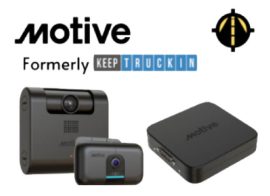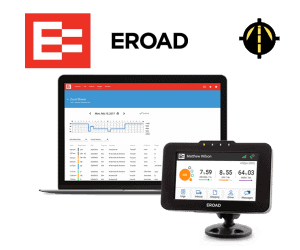Motor truck cargo insurance provides financial coverage to individual truck drivers or freight companies. It includes liability for damaged goods and physical loss to the truck. It also covers any direct physical damage that happens during the process of loading, unloading, and when the truck is in transit.
Some insurance companies even offer financial support while the vehicle is at a terminal, waiting for goods distribution. Other companies offer customized policies that will extend the insurance coverage to any physical loss that happens during unexpected waiting times. For instance, spoilage is caused by high temperatures or faults in the cooling system while waiting on docks. 
Motor truck cargo insurance is vital for protecting the equipment and cargo inside a truck, covering losses from accidents or thefts. This insurance encompasses various types of equipment, including trailers, and offers coverage for cargo damaged in transport or spoiled items due to faulty refrigerated trucks.
All of the different coverage packages of motor truck cargo insurance depend on different companies and their policies. This is why understanding risks covered by insurance and different types of policies is crucial.
How Does Truck Cargo Insurance Work?
Motor truck cargo insurance comes under the category of automotive insurance. Some freight businesses hire individual truck drivers to work for them. These drivers are entirely or partially compensated by the company’s insurance policy. It means that the driver will not be liable for any damage considering that the accident or any kind of damage was not their fault.
This policy can only be used for business purposes. The trucking company applying for truck cargo insurance will prove their driving records as it will be the deciding element in monthly payments of the insurance and the total amount of the insurance policy.
Nationwide, Progressive, Great American Insurance Group, NITIC, and Statefarm are some of the leading names in motor truck cargo insurance compies. All of them offer great financial strength and have excellent customer representation.
The FMCSA requires all household goods motor carriers and freight forwarders to carry minimum cargo insurance of $5,000 per vehicle and $10,000 per occurrence.
Here are the kinds of businesses that can take advantage of motor truck cargo insurance:



Insurance Calculation Factors
Insurance companies adopt a detailed approach when calculating cargo insurance premiums. The value of the goods being transported is a primary factor, as higher-value cargo typically poses a greater risk.
Additionally, the distance over which the goods are transported is crucial since longer journeys can increase the likelihood of incidents. Insurance providers also consider the history of losses experienced by the carrier, as a record with frequent claims can suggest higher risks.
Furthermore, the classification of the freight plays a role, as different types of goods, like perishable items or electronics, have varying levels of vulnerability. Together, these factors enable insurance providers to tailor premiums that reflect the specific risks associated with each transportation task.
Additional Coverage Options
Motor truck cargo insurance extends beyond basic protection, offering a range of additional coverage options to meet diverse needs. This includes freight income coverage, which compensates for lost payments in scenarios where a job cannot be completed due to unforeseen events.
Comprehensive coverage also encompasses debris removal, traffic control measures, and security services, ensuring that unforeseen incidents during transit are managed effectively.
Notably, towing services are also covered, providing essential support in the event of vehicle breakdowns or accidents. In the case of fires, a fire department surcharge is included, and for cases involving theft or loss, reward coverage is available, incentivizing the recovery of lost goods.
These additional options provide an encompassing safety net, ensuring that a range of potential scenarios are covered, thereby safeguarding the financial stability of trucking businesses and their clients.
Types of Motor Truck Insurance
There are several different kinds of motor truck cargo insurance packages depending on the carrier’s needs. The selection of these types also relies on the size of truck or freight companies. Private drivers and individual owner companies working under a large freight company will take partial benefits from them. While freight companies have their own policy crafted by reputable insurance organizations.
In order to decide which policy is best for your business, hire an expert advising team with experience in insurance. It will be beneficial in the long term as the advisory team will be able to craft a custom insurance policy that best suit your company’s needs.
Motor truck cargo liability is also one of the types of truck insurance, but it mainly covers the damage to transported goods and the truck itself. Here are some of the common types of motor truck insurance:
General liability
This type of motor truck cargo insurance will cover damages and body injuries of a third party, but it is not related to the truck. If during a truck accident any damage happens to a third party, it will not be covered in this insurance. It is made mandatory by federal law for truck owners and freight companies to have general liability insurance. Individual drivers working under a company do not need to take out this insurance because they are compensated by their company.
Truck Liability Insurance
Truck liability insurance will pay for property damage or bodily injuries caused by the truck. FMCSA requires a minimum of $750,000 insurance packages from freight companies operating trucks in different states.
Non-Truck Liability Insurance
This is a kind of insurance that covers property damages and bodily injuries to third parties caused by a moving truck while outside of work. Any accident that happens when the truck driver is not completing their work hours will come under this category. The insurance policy of the company will not cover this kind of damage which is why drivers need to apply for this policy.
General and Specific Risk Coverage
Most motor truck cargo insurance companies will provide policies to car hauling trucks, dry freight carriers, dumping trucks, and refrigerated food carrier trucks. They have packages for both interstate and intrastate trucks.
The risk coverage of motor truck cargo insurance has many options. It can cover small risks and all kinds of hazards. All hazard coverage will provide complete compensation for damage caused by the reasons stated in the policy. But the specific risk insurance policy will only cover some specific damages; for instance breakdown of the cooling system in the food truck will be a particular risk.
General risks included in the policy include:
- Vandalism
- Political Unrest
- Storm
- Fire
- Lighting
- Road accident with another vehicle
Motor Truck Cargo Insurance vs. General Liability Insurance
Understanding the difference between motor truck cargo insurance and motor truck general liability insurance is crucial for comprehensive protection in the trucking industry. Motor truck cargo insurance specifically covers the goods being transported. It safeguards against losses due to damage, theft, or accidents during transit.
This type of insurance is tailored to the value and nature of the cargo, providing peace of mind that goods in transit are financially protected. On the other hand, motor truck general liability insurance focuses on the truck itself and any resulting bodily injuries from accidents.
This insurance is indispensable in covering liabilities related to truck operations, including damages and injuries to third parties. Both insurance types are fundamental to managing the different layers of risk in trucking operations. They ensure that both the assets being transported and the vehicles involved are adequately insured against a wide range of potential incidents.
Who Should Take Motor Truck Cargo Insurance?
According to federal law, commercial trucks are required to take an insurance policy to cover any accidents or collisions. The laws are even more strict for the trucks which move between different states. The trucks which can take motor truck cargo insurance are:
- Hauling carriers
- Cargo trucks
- Flatbed trucks
- Box trucks
- Garbage trucks
Most garbage trucks are required by law to have an insurance policy. However, they are still urged by risk management companies to sign up for some kind of motor truck cargo insurance. It is better to opt for an insurance policy that safeguards the vehicle and the goods it is transporting.
What Is Not Covered by Insurance?
Motor truck cargo insurance does not cover high-value items or dangerous products, contraband, furs, precious metals, and money.
Additionally, it excludes property seized or destroyed by authorities, nuclear hazards, war, poor packing, indirect losses, criminal acts, and damage from defective property or deterioration.
Here is a list of other materials that are not covered:
- Explosive material
- Work of art and jewelry
- Personal property
- pets/ living organisms
- Drugs or alcohol
- Shipment goods packaging
- Owned goods
These are the kinds of things that will not be covered by motor truck cargo insurance companies because they are not a part of the cargo itself or the transporting truck.
All in All
The most important thing to consider while selecting an insurance policy for motor truck cargo is the value it provides. It must cover general risks and some specific risks. If it covers a very low amount of damage, it will be a disadvantage for your freight business. It is better to hire an insurance advisor to work through different policies and select the best one for your business.
















 Answer 5 simple questions to request a
Answer 5 simple questions to request a